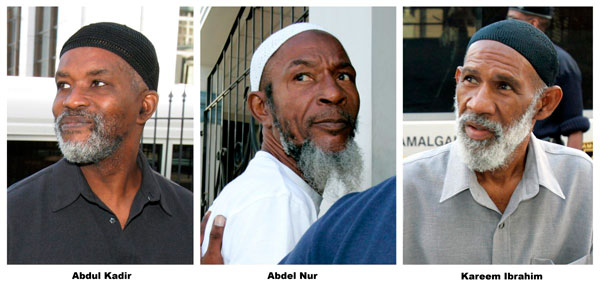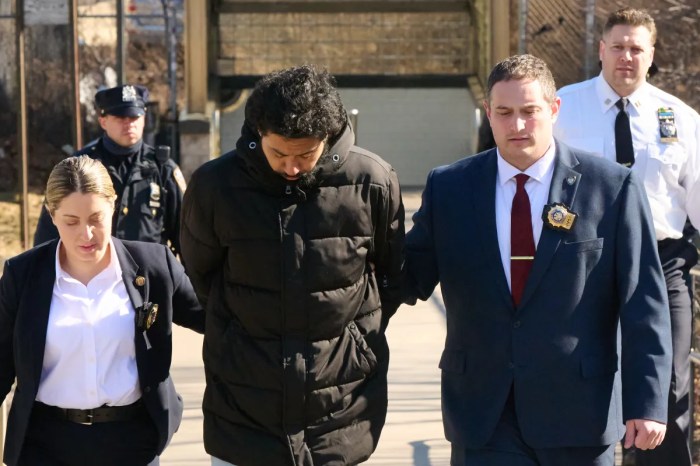“(T)error”
Excellent (3.5 stars)
Unrated
Running time: 93 minutes
Distributor: The Film Collaborative
It’s no surprise that government surveillance of Muslims has intensified since 9/11. That scrutiny has paid off, as it seems like once a month or so, we hear about how another terrorist plot has been thwarted by authorities just before it was about to be hatched.
However, upon closer scrutiny, it actually turns out that the FBI might just be setting traps for dummies who really have neither the desire nor the wherewithal to mount an attack. According to this incendiary investigation, the Bureau has basically been manufacturing homegrown jihadis by supplying the bombs and looking for gullible marks willing to say they’d light the fuse. And once they answer “yes” to an agent posing as a radical Islamist, off they go to a federal penitentiary for a very long stretch.
Granted, no one wants to see any ISIS-inspired mayhem occur on American soil. But by the same token, there is a legitimate question to be asked as to what lengths an undercover operative ought to go to determine whether a Muslim might be inclined to commit mass murder in the name of Allah.
That is the subject of “(T)error,” an eye-opening expose’ co-directed by Lyric Cabral and David Sutcliffe. The documentary zeroes-in on the exploits of Saeed “Shariff” Torres, a Black Panther-turned-police snitch who received a six-figure salary to infiltrate mosques and snitch on fellow Muslims.
Shariff has a great track record, having helped convict eight religious extremists. His most notorious case was against Tarik Shah, a famous jazz bassist who played with everybody from Betty Carter to Pharoah to Ahmad Jamal. Well, Shariff befriended the cash-strapped musician, first taking bass lessons from him, and then offering him a big payday for participating in a conspiracy.
I know what you’re thinking, why feel sorry for anyone who’d even think of siding with the enemy? Still, there is something unsettling about overbearing Shariff’s way of pressuring his targets after gaining their confidence. Plus, he never had to testify in court against them, except in the case against the last fanatic he fingered. That would be Khalifah Al-Akili, a devout, mild-mannered Muslim with a wife and young child.
The FBI relocated Shariff from New York to Pittsburgh so he could ingratiate himself with the Muslim community, in general, and with Khalifah, specifically. For the next couple of years, Shariff tried to induce him to join a terrorist cell.
But that proved to be an exercise in futility since the man clearly had no radical tendencies. In fact, Khalifah suspected Shariff of trying to entrap him and even begged to just be left alone. Nevertheless, the FBI was hellbent on nailing him for something, and he was ultimately convicted on a lame weapons charge after he fired an unregistered rifle on a gun range.
Now 63, in failing health, and consumed with overwhelming regret, Shariff belatedly feels used. Of ruining Khalifah’s life, he says, “He’s not a terrorist. He’s not even a pseudo-terrorist.” Forget a bomb, “He wouldn’t throw rice at a wedding.” Shariff further laments the fact that a fatwa was placed on his head after his role in putting so many Muslims behind bars came to light.
The domestic War on Terror uncovered as an overzealous violation of Muslims’ Constitutional rights.
























